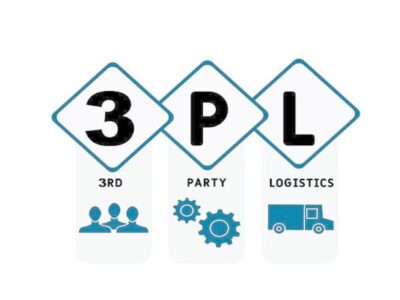 Data breaches happen all the time. It doesn’t necessarily have to be a cybercriminal hacking into your organisation’s computer systems; anyone, including your employees, can be a reason for a breach. Aside from hacks, several ways and methods can be used to compromise company-sensitive data and computer systems. Your business can employ a data protection consultant to help tackle this. Here are some of the ways your computer systems and data can be breached.
Data breaches happen all the time. It doesn’t necessarily have to be a cybercriminal hacking into your organisation’s computer systems; anyone, including your employees, can be a reason for a breach. Aside from hacks, several ways and methods can be used to compromise company-sensitive data and computer systems. Your business can employ a data protection consultant to help tackle this. Here are some of the ways your computer systems and data can be breached.
1. An Employee’s Mistake
A simple mistake by your employee(s) can cause a massive, though unintended, data breach. Although you might know this already, your company is only one click away from having your systems and valuable data hijacked. Some of these mistakes occur when the employee doesn’t follow laid out procedures, thus leaking information in the end. You can discover and curb this problem if you use time tracking projects solution to track employees’ activities and processes in more detail.
An excellent example of an unintended (but irreversible) mistake is when one bulk emails with recipients listed in the Cc field stead of Bcc. Unless he/she notices the mistake before hitting the send button, the recipients will be able to see every other person’s email address that the email was intended for. While this may not be a problem for some instances, it can be disastrous if the mailing list was from a subscription or if it reveals sensitive data such as political affiliations and medical status.
2. A Cyber Attack
You can’t be too prepared for a cyber-attack. Malicious hackers may target your company accessing vast amounts of sensitive data and even taking control of your computer systems. Cyber attacks are classified into 3 categories:
a. Exploits: This is a method in which an attacker (hacker) uses things such as brute-force password hacks to log-in to an account. The hacker will use a tool capable of generating millions of possible passwords in an attempt to look for the correct credentials. This is one of the reasons why it is advisable to create a strong password for your accounts.
b. Malware: Some hackers will use various types of malware to gather information about your business, and cause disruptions with the same. Your computer system can be infected through a script which is injected to help collect data for the hacker. The program monitors everything from browsing habits to the user’s private and confidential data. More destructive forms of malware, including Ransomware, adware, and viruses, may even infect your systems, deleting and also corrupting all the files.
c. Social Engineering: This type of attack is a lot different from the other two. It is so advanced that it warrants a discussion on its own.
3. Social Engineering
This type of hack involves the attacker masquerading as a legitimate organisation or person. The attacker will trick you or your employees to:
a. Hand over sensitive data by either downloading an infected attachment into the computer;
b. Give the hacker access to restricted areas with either admin login details or giving them physical access to the organisation’s premise.
Most hackers will use phishing to trick you into providing them with such sensitive information. This can be in the form of an email that seems legitimate and contains urgent requests. The request can be to provide user login details, to click a link, or to trick one into believing there’s something wrong with their systems. While phishing attacks are frequent in the form of email messages, text messages and social media can also be used.
4. A Malicious Insider
As explained earlier on, your employees are the most significant security threat to the company. While an employee might unknowingly cause a data breach, some of them will do it willingly. An employee may collaborate with a fraudster giving them access to systems and sensitive information. These are known as malicious insiders. Some of the reasons an employee may do this include:
a. Revenge: If the employee had/has been laid off or feels unappreciated;
b. Financial gain: An employee with/without a financial strain may choose to sell company data to get some money. They may make copies of sensitive emails to sell them to rival companies or in the dark web.
5. Physical Theft
The data breach doesn’t necessarily have to involve digital information. Paper records can be stolen from the company as well. This is one of the reasons you need to be particularly careful with physical data theft. Some of the best ways to prevent paper record theft are by having them disposed of rightly, shredding anything that requires shredding, and keeping them under lock and key.
You also need to be careful when disposing of digital devices such as old computers, hard disks, and USB drives. Have them all wiped clean before disposing of them.










Comments